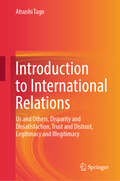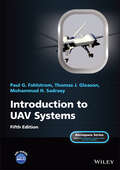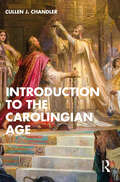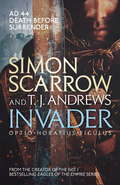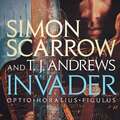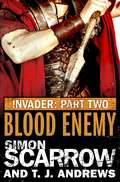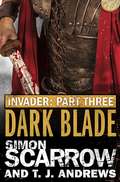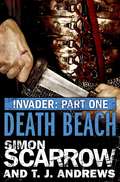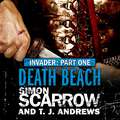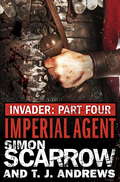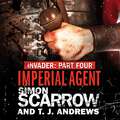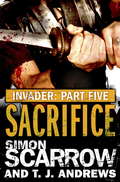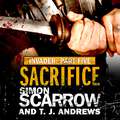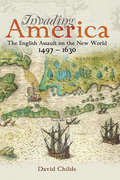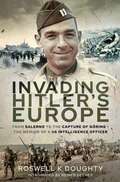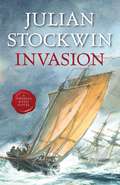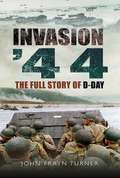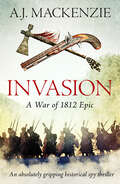- Table View
- List View
Introduction to International Relations: Us and Others, Disparity and Dissatisfaction, Trust and Distrust, Legitimacy and Illegitimacy
by Atsushi TagoThis textbook provides a comprehensive introduction for individuals who are new to the discipline of International Relations or World Politics. It features three distinctive elements. First, it posits that understanding the international political economy is essential before delving into analyses of war and security, emphasizing that economic interdependence, arising from international cooperation, is a central theme in international relations. Second, the textbook recognizes that strategic interaction — where the decisions of one entity and future outcomes depend on the choices of another — is a core component of international relations. It also utilizes four key concepts in its exploration of the field: Us and Others, Disparity and Dissatisfaction, Trust and Distrust, and Legitimacy and Illegitimacy. Lastly, the textbook is attuned to the methodologies of the Social Sciences, including descriptive, causal, and deductive inferences, and it stands out for its commitment to fostering methodological awareness.
Introduction to UAV Systems (Aerospace Series)
by Mohammad H. Sadraey Paul G. Fahlstrom Thomas J. GleasonIntroduction to UAV Systems The latest edition of the leading resource on unmanned aerial vehicle systems In the newly revised Fifth Edition of Introduction to UAV Systems, an expert team of aviators, engineers, and researchers delivers the fundamentals of UAV systems for both professionals and students in UAV courses. Suitable for students in Aerospace Engineering programs, as well as Flight and Aeronautics programs, this new edition now includes end-of-chapter questions and online instructor ancillaries that make it an ideal textbook. As the perfect complement to the author’s Design of Unmanned Aerial Systems, this book includes the history, classes, and missions of UAVs. It covers fundamental topics, like aerodynamics, stability and control, propulsion, loads and structures, mission planning, payloads, and communication systems. Brand-new materials in areas including autopilots, quadcopters, payloads, and ground control stations highlight the latest industry technologies. The authors also discuss: A thorough introduction to the history of unmanned aerial vehicles, including their use in various conflicts, an overview of critical UAV systems, and the Predator/Reaper A comprehensive exploration of the classes and missions of UAVs, including several examples of UAV systems, like Mini UAVs, UCAVs, and quadcopters Practical discussions of air vehicles, including coverage of topics like aerodynamics, flight performance, stability, and control In-depth examinations of propulsion, loads, structures, mission planning, control systems, and autonomy Perfect for professional aeronautical and aerospace engineers, as well as students and instructors in courses like Unmanned Aircraft Systems Design and Introduction to Unmanned Aerial Systems, Introduction to UAV Systems is an indispensable resource for anyone seeking coverage of the latest industry advances and technologies in UAV and UAS technology.
Introduction to the Carolingian Age
by Cullen J. ChandlerIntroduction to the Carolingian Age provides an accessible history of western Europe in the eighth and ninth centuries, when arguably a truly European civilization emerged out of the transformed, former world of the Roman Empire.Through a thematical and chronological approach, this book explores the life, family, and period of Charlemagne in a clear and informative way. The secular aristocrats, ecclesiastical figures, and scholars associated with the Carolingian dynasty feature as partners in building the empire and guiding its development, and the social and cultural lives of people from the elite to the common classes are also examined. Through an engaging narrative, this study demonstrates that by the end of the ninth century, the royal house faced a series of challenges that brought about the devolution of the empire into smaller kingdoms and the loosening of the Carolingian family’s grip on monarchy. Based on up-to-date scholarship, Introduction to the Carolingian Age offers explanations of historical developments and discussions of key historiographical debates.This book is an essential resource for both undergraduate students and general readers with an interest in the history of the Carolingian period from 750–900.
Introduction to the Navy Junior Reserve Officer Training Corps
by Celeste Fraser Thomas J. Baerwald Kathy Teer Crumpler Diane Sukiennik Lisa Raufman William Bendat Deborah Prothrow-Smith B. E. Buzz PruittThis book prepares students for Navy Junior Reserve Officer Training Corps. Excerpts taken from: Health Skills for Wellness, Third Edition, The Career Fitness Program: Exercising Your Options, Sixth Edition, and World Geography: Building a Global Perspective.
Invader
by Simon Scarrow T. J. AndrewsINVADER is a Sunday Times bestseller from Simon Scarrow (author of the bestsellers BRITANNIA and CENTURION) and T. J. Andrews, co-author of the bestselling INVADER. Featuring the Roman army officer Figulus in first-century Britannia, INVADER is not to be missed by readers of Conn Iggulden and Bernard Cornwell.Roman Britain, AD 44. The land is far from tamed. A puppet king is doing little to calm the hatred of the native tribes.Fighting is in Optio Horatius Figulus' blood. His Celtic ancestry gives him the toughness essential for survival. That toughness will be tested to the very limit when he is sent on a mission deep in hostile territory. And Figulus knows that, even utterly crushed in battle, their warriors routed and the Druids driven from their hill forts, the tribesmen of Britannia will sooner die than surrender.Figulus fought alongside Macro and Cato in Simon Scarrow's bestselling Eagles of the Empire series. In INVADER, he stands alone.INVADER has previously been published in five separate ebook novellas.
Invader
by Simon Scarrow T. J. AndrewsINVADER is a Sunday Times bestseller from Simon Scarrow (author of the bestsellers BRITANNIA and CENTURION) and T. J. Andrews, co-author of the bestselling INVADER. Featuring the Roman army officer Figulus in first-century Britannia, INVADER is not to be missed by readers of Conn Iggulden and Bernard Cornwell.Roman Britain, AD 44. The land is far from tamed. A puppet king is doing little to calm the hatred of the native tribes.Fighting is in Optio Horatius Figulus' blood. His Celtic ancestry gives him the toughness essential for survival. That toughness will be tested to the very limit when he is sent on a mission deep in hostile territory. And Figulus knows that, even utterly crushed in battle, their warriors routed and the Druids driven from their hill forts, the tribesmen of Britannia will sooner die than surrender.Figulus fought alongside Macro and Cato in Simon Scarrow's bestselling Eagles of the Empire series. In INVADER, he stands alone.INVADER has previously been published in five separate ebook novellas.
Invader
by Simon Scarrow T. J. AndrewsFrom the author of the Sunday Times bestsellers BRITANNIA, CENTURION and THE GLADIATOR, and co-author with T. J. Andrews of the Sunday Times bestseller ARENA, comes a tense, action-packed adventure with the Roman army officer Figulus in the heart of barbaric first-century Britannia. Roman Britain, AD 44. The land is far from tamed. A puppet king is doing little to calm the hatred of the native tribes and bring them under Roman rule.Fighting is in Optio Horatius Figulus' blood. His Celtic ancestry is mocked by his fellow soldiers, but it gives him the toughness essential for survival. That toughness will be tested to the very limit when he is sent on a mission deep in hostile territory.And Figulus understands the Celtic mind. He knows that, even utterly crushed in battle, their warriors routed and the Druids driven from their hill forts, the tribesmen of Britannia will sooner die than surrender.Figulus fought alongside Macro and Cato in Simon Scarrow's bestselling Eagles of the Empire series. In INVADER, he stands alone.INVADER has previously been published in five separate ebook novellas. This print edition brings the complete series together in one volume.
Invader: Blood Enemy (2 in the Invader Novella Series)
by Simon Scarrow T. J. AndrewsThe second novella in the gripping INVADER series, set in Roman Britain, AD 44, from Sunday Times bestselling authors Simon Scarrow and T. J. AndrewsBritannia is a nightmare campaign setting for the brave soldiers of the Second Legion. Horatius Figulus, a junior officer, has been rewarded for bravery and skill against the island's rebel forces with a mission that could bring him prestige and position. He and his most trusted comrades are to help install a new king in a hostile area. Succeed, and they'll establish an imperative Roman stronghold. Fail, and the whole invasion will be jeopardised.Under constant attack from raiders, plagued by ruthless Druids and up against hostile natives, Figulus and his men will need all their courage and ingenuity to succeed.
Invader: Blood Enemy (2 in the Invader Novella Series)
by Simon Scarrow T. J. AndrewsThe second novella in the INVADER series, set in Roman Britain, AD 44, from Sunday Times bestselling authors Simon Scarrow and T. J. AndrewsBritannia is a nightmare campaign setting for the brave soldiers of the Second Legion. Horatius Figulus, a junior officer, has been rewarded for bravery and skill against the island's rebel forces with a mission that could bring him prestige and position. He and his most trusted comrades are to help install a new king in a hostile area. Succeed, and they'll establish an imperative Roman stronghold. Fail, and the whole invasion will be jeopardised.Under constant attack from raiders, plagued by ruthless Druids and up against hostile natives, Figulus and his men will need all their courage and ingenuity to succeed.(P)2018 Headline Publishing Group Ltd
Invader: Dark Blade (3 in the Invader Novella Series)
by Simon Scarrow T. J. AndrewsThe third novella in the gripping INVADER series, set in Roman Britain, AD 44, from Sunday Times bestselling authors Simon Scarrow and T. J. AndrewsDespite defeat in battle, Britannia's natives continue to resist their Roman conquerors. All attempts to impose Roman rule have failed. A new king has been installed among the Durotriges to bring them into line and Optio Horatius Figulus of the Second Legion is charged with protecting him. It's a thankless task and, worse still, the Druids are rumoured to be plotting to assassinate the king. The king begins a devastating campaign of reprisals against his political rivals. Whole families are murdered, weapons are confiscated and the old gods are denounced. As open native rebellion threatens, Figulus finds his unswerving allegiance to Rome faltering. Just as a Druid assassin is poised to strike...
Invader: Dark Blade (3 in the Invader Novella Series)
by Simon Scarrow T. J. AndrewsThe third novella in the gripping INVADER series, set in Roman Britain, AD 44, from Sunday Times bestselling authors Simon Scarrow and T. J. AndrewsDespite defeat in battle, Britannia's natives continue to resist their Roman conquerors. All attempts to impose Roman rule have failed. A new king has been installed among the Durotriges to bring them into line and Optio Horatius Figulus of the Second Legion is charged with protecting him. It's a thankless task and, worse still, the Druids are rumoured to be plotting to assassinate the king. The king begins a devastating campaign of reprisals against his political rivals. Whole families are murdered, weapons are confiscated and the old gods are denounced. As open native rebellion threatens, Figulus finds his unswerving allegiance to Rome faltering. Just as a Druid assassin is poised to strike...(P)2014 Headline Publishing Group Ltd
Invader: Death Beach (1 in the Invader Novella Series)
by Simon Scarrow T. J. AndrewsThe first novella in the gripping INVADER series, set in Roman Britain, AD 44, from Sunday Times bestselling authors Simon Scarrow and T. J. AndrewsThe invasion of Britannia has been bloody and relentless, and still the barbaric islanders have not been fully conquered. The men of the Second Legion have suffered grievous losses in driving back their bitterest enemy, but worse is yet to come for the beleaguered soldiers. With winter fast approaching, they face a new threat: ferocious native warriors launching coordinated attacks from their secret base on the Isle of Vectis.In response, the new legate announces a plan to invade Vectis and rout the enemy in what he expects to be a speedy and successful mission. But Horatius Figulus, a junior officer with local knowledge of the enemy, doubts the invasion will be so straightforward. And when the Second Legion encounters fierce resistance on the beach, Figulus and his fellow soldiers suddenly find themselves fighting a desperate battle for their lives....
Invader: Death Beach (1 in the Invader Novella Series)
by Simon Scarrow T. J. AndrewsThe first novella in the gripping INVADER series, set in Roman Britain, AD 44, from Sunday Times bestselling authors Simon Scarrow and T. J. AndrewsThe invasion of Britannia has been bloody and relentless, and still the barbaric islanders have not been fully conquered. The men of the Second Legion have suffered grievous losses in driving back their bitterest enemy, but worse is yet to come for the beleaguered soldiers. With winter fast approaching, they face a new threat: ferocious native warriors launching coordinated attacks from their secret base on the Isle of Vectis.In response, the new legate announces a plan to invade Vectis and rout the enemy in what he expects to be a speedy and successful mission. But Horatius Figulus, a junior officer with local knowledge of the enemy, doubts the invasion will be so straightforward. And when the Second Legion encounters fierce resistance on the beach, Figulus and his fellow soldiers suddenly find themselves fighting a desperate battle for their lives....(P)2014 Headline Publishing Group Ltd
Invader: Imperial Agent (4 in the Invader Novella Series)
by Simon Scarrow T. J. AndrewsThe fourth novella in the gripping INVADER series, set in Roman Britain, AD 44, from Sunday Times bestselling authors Simon Scarrow and T. J. AndrewsIn the winter of AD 44, Rome's plan to install a friendly king in the most hostile area of Britannia is facing a new threat. There are rumours of a traitor close to the new king, and a new enemy is gathering strength beyond the marshes. As the king continues with his plans to Romanise his subjects, Horatius Figulus, a junior officer in the Second Legion, is charged with training up the new royal bodyguard. But when a trap is sprung on the Roman army, a secretive Druid sect seizes power and takes the king hostage.Now Figulus must infiltrate the enemy ranks, release the king and track down the elusive leader of the Druids - before the whole of Britannia descends into bloody chaos...
Invader: Imperial Agent (4 in the Invader Novella Series)
by Simon Scarrow T. J. AndrewsThe fourth novella in the gripping INVADER series, set in Roman Britain, AD 44, from Sunday Times bestselling authors Simon Scarrow and T. J. AndrewsIn the winter of AD 44, Rome's plan to install a friendly king in the most hostile area of Britannia is facing a new threat. There are rumours of a traitor close to the new king, and a new enemy is gathering strength beyond the marshes. As the king continues with his plans to Romanise his subjects, Horatius Figulus, a junior officer in the Second Legion, is charged with training up the new royal bodyguard. But when a trap is sprung on the Roman army, a secretive Druid sect seizes power and takes the king hostage.Now Figulus must infiltrate the enemy ranks, release the king and track down the elusive leader of the Druids - before the whole of Britannia descends into bloody chaos...(P)Headline Publishing Group Ltd
Invader: Sacrifice (5 in the Invader Novella Series)
by Simon Scarrow T. J. AndrewsThe gripping final novella in the INVADER series, set in Roman Britain, AD 45, from Sunday Times bestselling authors Simon Scarrow and T. J. Andrews.Britannia, AD 45. Rome's plan to establish a new friendly king over a hostile native tribe is in grave danger. A sinister new Druid sect, led by a charismatic priest, is threatening to destabilise the province and has taken several Roman soldiers prisoner. Now Optio Horatius Figulus faces his most dangerous mission yet. He must venture deep behind enemy lines in search of his captured comrades and the Druids' secret fortress. Can Figulus stop the Dark Moon Druids from inflicting a devastating defeat against the Second Legion? Can he rescue his comrades before they are put to death in a terrifying spectacle?
Invader: Sacrifice (5 in the Invader Novella Series)
by Simon Scarrow T. J. AndrewsThe gripping final novella in the INVADER series, set in Roman Britain, AD 45, from Sunday Times bestselling authors Simon Scarrow and T. J. Andrews.Britannia, AD 45. Rome's plan to establish a new friendly king over a hostile native tribe is in grave danger. A sinister new Druid sect, led by a charismatic priest, is threatening to destabilise the province and has taken several Roman soldiers prisoner. Now Optio Horatius Figulus faces his most dangerous mission yet. He must venture deep behind enemy lines in search of his captured comrades and the Druids' secret fortress. Can Figulus stop the Dark Moon Druids from inflicting a devastating defeat against the Second Legion? Can he rescue his comrades before they are put to death in a terrifying spectacle?(P)2018 Headline Publishing Group Ltd
Invading America: The English Assault on the New World, 1497–1630
by David ChildsA fascinating examination of why England failed for so long to colonize North America, in contrast to Spain’s rapid conquest farther south.Within a generation of Columbus’s first landfall in the Caribbean, Spain ruled an empire in central and south America many times the size of the home country. In stark contrast, after a century of struggle, and numerous disasters, English colonizing efforts farther north had succeeded in settling the banks of one waterway and the littoral of several bays. How and why progress was so slow and laborious is the central theme of this thought-provoking new book. Invading America argues that this is best understood if the development of the English colonies is seen as a protracted amphibious operation, governed by all the factors that traditionally make for success or failure in such endeavors—aspects such as proper reconnaissance, establishing a secure bridgehead, and timely reinforcement. It examines the vessels and the voyages, the unrealistic ambitions of their promoters, the nature of the conflict with the native Indians, and the lack of leadership and cooperation that was so essential for success. Using documentary evidence and vivid firsthand accounts, it describes from a new perspective the often tragic, sometimes heroic, attempts to settle on the American coast and suggests why these so often ended in failure. As this book shows, the emergence of a powerful United States was neither inevitable nor easily achieved.Includes illustrations and a list of historic sites
Invading Colombia: Spanish Accounts of the Gonzalo Jiménez de Quesada Expedition of Conquest (Latin American Originals #1)
by J. Michael FrancisIn early April 1536, Gonzalo Jiménez de Quesada led a military expedition from the coastal city of Santa Marta deep into the interior of what is today modern Colombia. With roughly eight hundred Spaniards and numerous native carriers and black slaves, the Jiménez expedition was larger than the combined forces under Hernando Cortés and Francisco Pizarro. Over the course of the one-year campaign, nearly three-quarters of Jiménez’s men perished, most from illness and hunger. Yet, for the 179 survivors, the expedition proved to be one of the most profitable campaigns of the sixteenth century. Unfortunately, the history of the Spanish conquest of Colombia remains virtually unknown.Through a series of firsthand primary accounts, translated into English for the first time, Invading Colombia reconstructs the compelling tale of the Jiménez expedition, the early stages of the Spanish conquest of Muisca territory, and the foundation of the city of Santa Fé de Bogotá. We follow the expedition from the Canary Islands to Santa Marta, up the Magdalena River, and finally into Colombia’s eastern highlands. These highly engaging accounts not only challenge many current assumptions about the nature of Spanish conquests in the New World, but they also reveal a richly entertaining, yet tragic, tale that rivals the great conquest narratives of Mexico and Peru.
Invading Hitler's Europe: From Salerno to the Capture of Göring—The Memoir of a US Intelligence Officer
by Roswell K. DoughtyA firsthand account of a US Army officer’s part in the liberation of Europe during World War II—from North Africa into the heart of the Third Reich. After graduating from Boston University, Roswell K. Doughty became an Intelligence Officer with the US 36th (Texas) Division. He subsequently saw action in North Africa, then at the disastrous Salerno landings in Italy—where the Allied divisions involved suffered 4,000 casualties—about which the author reveals that suspected intelligence breaches led to the Allies’ plans becoming known to the Germans.Doughty was involved in the grueling battles against the formidable German defenses of the Gustav Line, particularly in the tragic failed attempt to cross the Gari river (Battle of the Rapido River, January 1944) and the struggle to conquer Monte Cassino. After the Anzio landings and the liberation of Rome, Doughty and his infantry regiment, the 141st, took part in the invasion of Southern France in Operation Dragoon, fighting its way up the Rhône River and advancing up to the River Moselle in December 1944. In March 1945, his unit breached the Siegfried Line and crossed into the Germany itself. As an Intelligence Officer, it was also part of Doughty’s duties to interrogate enemy prisoners, which led him to being involved in the capture and detention of Reichsmarschall Go¨ring and in negotiating the surrender of the still-armed and hostile German First Army in May 1945.These are Doughty’s candid recollections from his ground-level point of view. They form a story of survival and a cause for reflection about courage, camaraderie, and the nature of war.
Invasion
by HarryChina has become the new, dominant superpower. She has expanded - with a new, brutally efficient military machine - throughout the globe. Asia is subjugated and the Middle-East has been crushed. With blinding speed, Europe has been cut off by blockade. But while the world burns, America wallows in isolationist splendour; her defence budgets are cut and her armed forces atrophy. The book opens as a five million man army is poised to invade the American south from Cuba. A new President has been elected, who is frantically trying to rearm but all seems doomed as the inevitable invasion approaches.
Invasion
by Julian StockwinIn the 10th volume in the popular high-seas nautical adventure series, rumors fly of Napoleon's planned invasion of England, and British naval commander Thomas Kydd is sent to liaise with American inventor Robert Fulton, who has created "infernal machines" that can wreak mass destruction from a distance. Fulton believes that his inventions, namely the submarine and torpedo, will win the day for the power that possesses them, and Kydd must help him develop the devices. Despite his own belief that standing man-to-man is the only honorable way to fight, Kydd agrees to take part in the crucial testing of these weapons of mass destruction, which just may decide the fate of England.
Invasion '44: The Full Story of D-Day (Airlife Classics Ser.)
by John Frayn TurnerIn the pre-dawn darkness of 6 June 1944, the greatest armada the world has ever seen began to disembark an Allied invasion force on the beaches of France's Normandy peninsula. Invasion '44 tells the story of that assault from the day over four years earlier, and only a few short weeks after the British disaster at Dunkirk, when a few individuals in the High Command began to turn their thoughts to the possibilities of an eventual return to the mainland, and the story continues up to the time when the Allied beach-head was firmly established on French soil. As the battle progresses, the reader is allowed to view each successive wave as it lands, follow the developing battle line inland, and keep an eye on the vital battles also developing on and beneath the seas off the Normandy peninsula and in the skies above it.
Invasion (The War of 1812 Epics)
by A.J. MacKenzieA spy and a traitor lead American invaders against a beleaguered Canadian captain in this historical action thriller set during the War of 1812. May 1813. Under covering fire from their navy on Lake Ontario, US troops storm ashore at Niagara. Captain John MacLea and his reformed company of militia fight desperately but they and the other defenders are overwhelmed and forced to retreat. The American force is mightier than it has ever been, spearheaded by Colonel Peter Beauregard, a ruthless spy-master, and James Boydell, a Canadian captain, former friend of MacLea&’s, and traitor to his country. As the invading army closes in, and with no time left, the hope of an entire army, and all its men, rests on the shoulders of the most unexpected of people. Failure is not an option. They must succeed, or face total defeat. Perfect for fans of Adrian Goldsworthy, Bernard Cornwell, and Simon Scarrow.
Invasion 1914
by Ian SeniorFor a century, accounts of the German invasion of France and the opening year of the First World War have been dominated by histories of British troops and their experience in battle, despite the fact that the British Expeditionary Force comprised just four divisions, while the French and Germans fielded 60 each. Published to coincide with the 100th anniversary of the outbreak of the Great War, Invasion 1914 examines how the German invasion of France and Belgium came agonizingly close to defeating the French armies, capturing Paris and ending the First World War before the end of the year. Ian Senior reveals how the initial German strategy revolved around, and in part depended on, rapid victory over the French, and how the failure to achieve this resulted in the surprisingly fluid battles of the early days of the war deteriorating into the trench-based warfare which was to see the war drag on for another four years of unprecedented slaughter. Weaving together strategic analysis, diary entries, eyewitness accounts and interview transcripts from soldiers on the ground with consummate skill, this narrative is a timely investigation into the dramatic early months of the war, as the fate of Europe hung in the balance.
